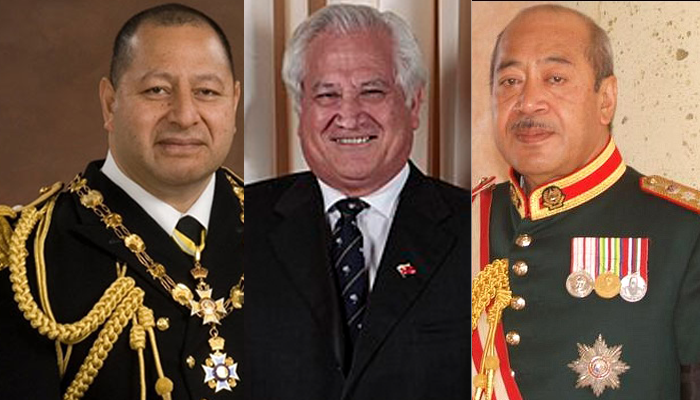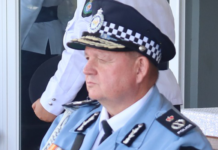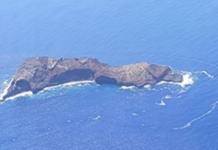Explainer – In November, Tonga’s so-called democracy will mark 15 years—an anniversary not of progress, but of deception.

What was once heralded as a historic shift from absolute to representative governance has proven to be little more than an illusion —a meticulously crafted façade that dupes citizens into believing their votes grant true accountability, when in reality, corrupt powerholders remain entrenched beyond the reach of democratic checks.
For over 40 years, Tonga’s democratic reforms were championed by the nation’s foremost scholars and patriots—figures such as former Deputy Prime Minister Langikavaliku, Catholic Bishop Patelesio Finau, Free Wesleyan President Dr Sione ‘Amanaki Havea, Professor Futa Helu of ‘Atenisi University and democracy advocate ‘Akilisi Pōhiva.
Their movement gained undeniable momentum, with Pōhiva’s unbroken parliamentary presence from 1987 to 2019—culminating in his premiership from 2014 until his death.
This vision was ultimately realised by King George V, who relinquished his executive powers to an elected government in 2010
Democracy’s Broken Promise Exposed
Yet when Lord Tuʻivakanō’s government took office after the November 2010 general election—becoming the first to test the new democracy—it immediately encountered constitutional flaws that undermined transparency, accountability, and good governance: the very crux of any democratic system.
Rather than a functioning democracy, Tonga was left with a fractured system—its promise of reform diluted by inconsistencies that preserved the old guard’s power.
The Tuʻivakanō government acted swiftly, commissioning Trinidad and Tobago’s constitutional law expert, Peters Pursglove, to review the 2010 constitution and report his findings.
Constitutional Failure Undermining Democracy
In 2014, Pursglove’s assessment of Tonga’s 2010 constitution—believed to have been primarily drafted by Lord Dalgety (now one of the king’s law lords) and enacted under Lord Sevele’s government—was unequivocal: the reforms had failed to establish genuine democracy.
Pursglove said the constitution is poorly written, promotes secrecy, has compromised the role of the judiciary and parts of it may be illegal.
The report also says:
- Tonga’s 2010 constitution does not uphold democracy
- The Privy Council lacks any democratic composition or accountability
- The judiciary lacks accountability and transparency.
- Changes to the judiciary are inefficient, ineffective, unaffordable and possibly illegal.
- No public discussions were held regarding the reforms to the judiciary or why they were considered necessary.
- “The present Constitution of Tonga can lay claim to being the most poorly structured and drafted Constitution of any Country in the Commonwealth,” the report says.
The Pursglove report also recommended transferring appointment powers for both the Attorney-General and Police Commissioner to the Prime Minister and Cabinet.
King George V died in Hong Kong on March 18, 2012, before the Pursglove report was completed and submitted to both the government and Parliament in 2014. It is understood that a copy of the report was handed to King Tupou VI.
Initiators Oppose Pursglove Findings
The report’s recommendations were adopted by ʻAkilisi Pōhiva’s government after it came to power in 2015 and following its victory in the 2017 snap election. The Pursglove report’s findings were consolidated into six government bills, widely known in Tongan as “Fo’i lao ‘e Ono”, and were presented to Parliament by the Pōhiva government.
However, the six bills faced immediate resistance from the very architects of the Pursglove report.
Noble MPs and former Cabinet ministers—many of whom held dual legislative and executive roles when the Cabinet approved Pursglove’s hiring in 2011—fiercely obstructed implementation of his recommendations during parliamentary debates. Many believe the opposition from these elites was not due to the Pursglove reports themselves but rather their political malice toward Pōhiva.
This culminated in the Pōhiva government threatening to sue Chairman Lord Tuʻilakepa, accusing him of systematically and unnecessarily prolonging the parliamentary debates.
Tuʻilakepa finally apologised and allowed the report to be tabled in early September 2019, but Pōhiva passed away on the 12th before its adoption.
However, Pōhiva’s attempt to implement the report’s recommendations is widely believed to have prompted King Tupou VI’s 2017 dissolution of Parliament – revealing the monarch’s reluctance to continue his elder brother George V’s democratic reforms.
Following Pōhiva’s death, the subsequent Prime Minister, Pōhiva Tu’i’onetoa, told Kaniva News that he had withdrawn the bills, citing more pressing policy priorities.
The Pursglove report remains shelved, with neither legislative nor executive branches willing to enact its proposed reforms.
The king’s democracy dream: What went wrong?
Despite King George V publicly announcing his willingness to relinquish executive powers, the political transition process relied heavily on Lord Fred Sevele, who had served as Prime Minister prior to the democratic reform transition.
Unfortunately, the relationship between Sevele and democratic leader ‘Akilisi Pōhiva had already deteriorated, transforming their former political alliance in support of democracy into outright antagonism—with Sevele now viewed as an adversary by democracy advocates.
The king’s democratic endorsement—intended to enable a smooth transition—faced immediate backlash, particularly from Lord Sevele, whose public remarks openly discouraged and dissatisfied democratic reformers.
Following the 2006 devastation of Nuku’alofa’s CBD, democracy advocate Dr Sitiveni Halapua, argued Sevele’s deliberate stalling of the reforms, which were first set to be implemented earlier than 2010, had provoked the explosive unrest.
This aligned with Sevele’s 2009 RNZ Pacific statement, just one year ahead of the power transition, opposing full relinquishment of royal powers.
Sevele vs Constitutional and Electoral Commission
Former Tongan Attorney General John Cauchi previously told Kaniva News that the kingdom’s fundamental political problems stem from its constitution.
Cauchi argued that the government’s efforts to amend laws and revise the constitution shortly after the Pursglove report was released would be unnecessary had the kingdom’s democratic reforms originally followed the recommendations of the Constitutional and Electoral Commission (CEC), chaired by former Chief Justice Gordon Ward.
The CEC was established to gather public input on the desired form of a democratic constitution, present its findings to Parliament, and oversee the 2010 constitutional and electoral reforms.
Cauchi’s comment revealed how Sevele’s unwillingness to support King George V’s relinquishment of his executive powers to the people became not just a matter of public debate but would later be enshrined in a constitution that could jeopardise the democratic transition.
Even before the CEC’s final report was submitted, the Commissioners were concerned that they would be ignored and that Lord Sevele’s government would proceed independently.
The CEC’s recommendations were not adopted, and Lord Sevele’s government proceeded with its own submission, which led to the controversial 2010 constitution.
Recommendations
The main recommendations of the 2009 Constitutional and Electoral Commission were:
- That the King and Privy Council should no longer be part of the Executive Government and
- the Executive Government should be the Cabinet answerable to the Legislative Assembly .
- Government was to be a Constitutional Monarchy rather than a Constitutional Government.
- The Government of this Kingdom was to be divided into three bodies: Cabinet, the Legislative Assembly and the judiciary.
- The Monarch would appoint as Prime Minister the elected member of the Assembly recommended by the Assembly under a selection procedure provided in the Constitution and the Monarch would appoint as Ministers those individuals nominated by the Prime Minister.
- The Privy Council, of which Cabinet used to be part, would be an advisory body.
- Cabinet was now limited to the Prime Minister and 11 Ministers nominated by him.
- There would be no unelected ministers or cabinet members.
- The Parliamentary term should be three years. The Commission observed that “the longer the term, the less effective will be the power of voters” to control an ineffective or poor government.
- The right of every representative to introduce a Bill should be enshrined in the Constitution.
- There should be provision to secure sufficient time for proper consideration of all Bills of public interest by the members of the general public.
- All members of the public, including the media, should have full access to the Journal of the proceedings of the Assembly and to all the records of the public meetings of the Assembly.







